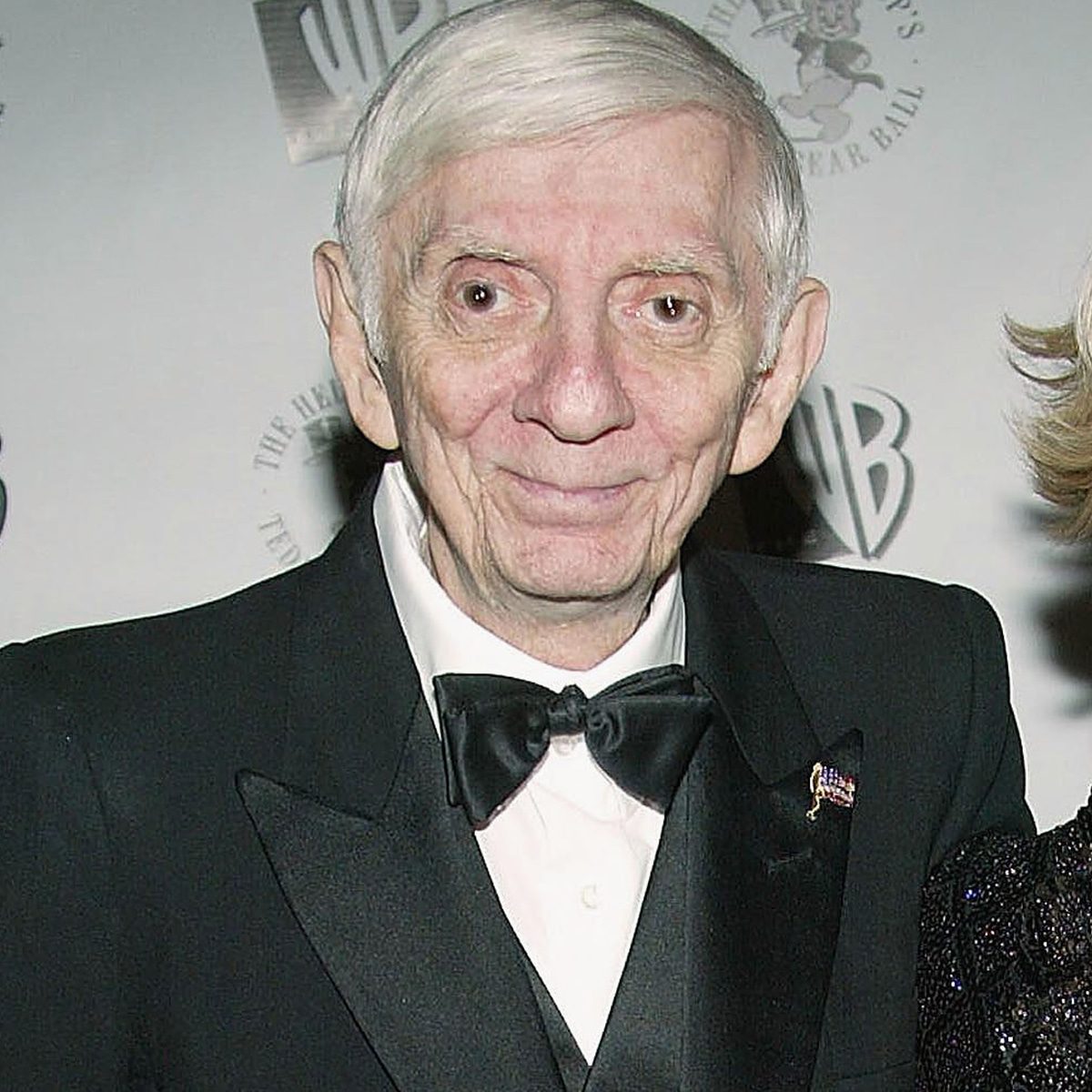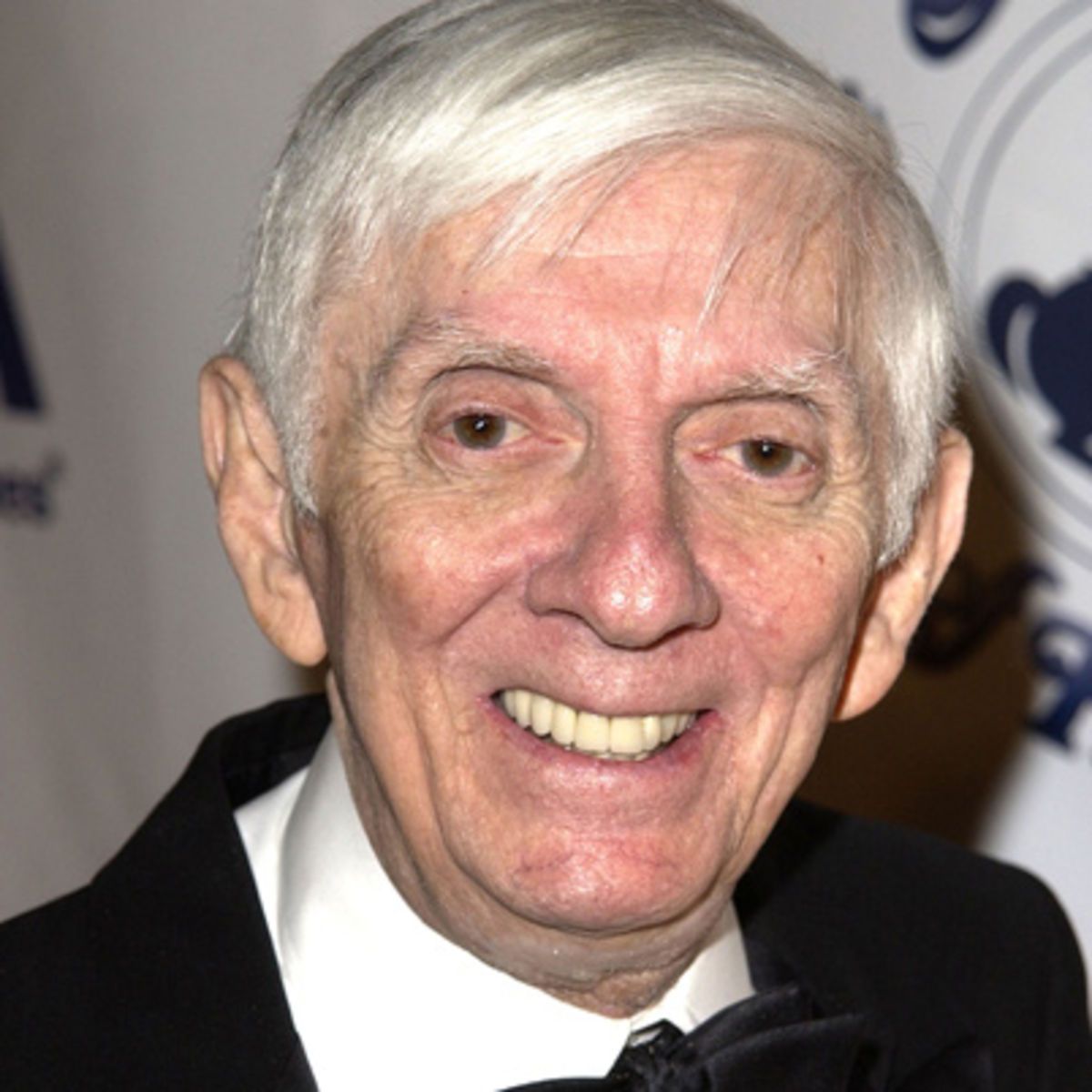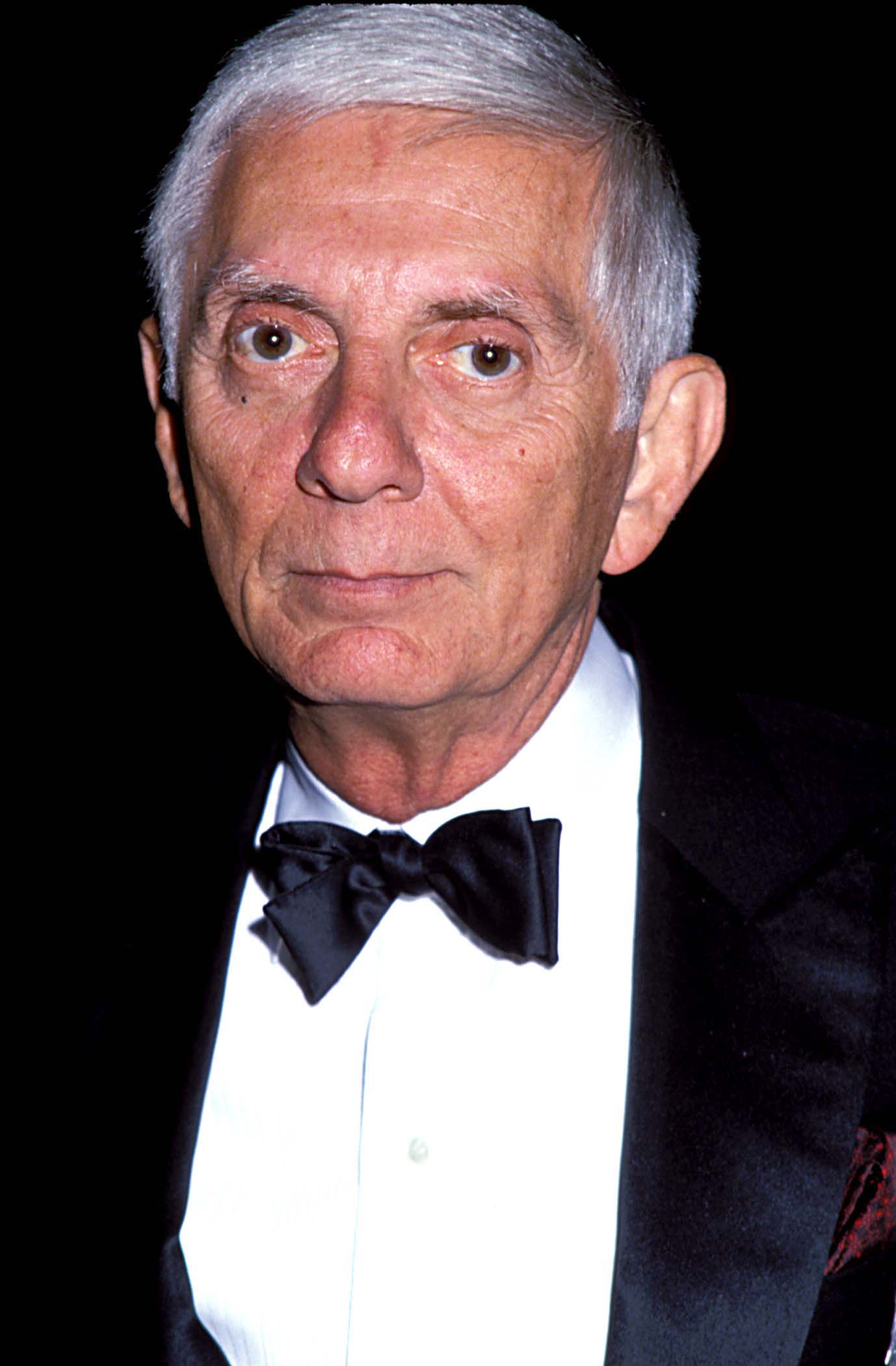Aaron Spelling: A Visionary Who Shaped Television As We Know It
When we think about the shows that really defined generations, the ones that captured our imaginations and, you know, kept us glued to the screen, it's almost impossible not to think of one name: Aaron Spelling. He was, in a way, a master storyteller, a person who understood what people wanted to watch before they even knew it themselves. His work didn't just entertain; it actually set trends, introduced iconic characters, and truly built a foundation for much of the television we enjoy today. It's quite something to consider his reach.
For many of us, his productions were a big part of growing up. Whether it was the glamour of rich families, the intrigue of detectives, or the everyday dramas of high school life, Aaron Spelling's touch was, so, distinctive. He had a knack for creating worlds that felt both aspirational and, you know, a bit relatable, pulling viewers into stories that felt larger than life yet still touched on universal feelings. He really did have a unique touch, didn't he?
His influence runs deep, and you can, in some respects, still see echoes of his style in current shows. From the way characters are developed to the kind of dramatic tension that keeps you watching, his legacy is, well, very much alive. This look at Aaron Spelling will explore his remarkable career, the shows that made him a household name, and the lasting impact he had on the small screen. It's a story worth hearing, that is for sure.
Table of Contents
- Who Was Aaron Spelling? A Life in Television
- The Early Years and a Rise to Prominence
- The Spelling Touch: Creating Television Icons
- A Legacy That Lives On
- Aaron Spelling and the Name Game
- Frequently Asked Questions About Aaron Spelling
Who Was Aaron Spelling? A Life in Television
Aaron Spelling was, you know, a true titan of television production. Born in Dallas, Texas, in 1923, his journey to becoming one of Hollywood's most prolific and successful producers was, well, a remarkable one. He didn't just stumble into the business; he really worked his way up, starting as an actor and then moving into writing and producing. It’s quite a testament to his drive, that is for sure.
He had a unique vision for television, seeing its potential to tell stories that resonated with a broad audience. His company, Spelling Television, became synonymous with popular, often glamorous, and always engaging programming. He had a way of spotting what viewers wanted, and then delivering it with a certain flair, which is something very few people manage to do consistently. His shows were, more or less, appointment viewing for millions, and that is a big deal.
Over his career, which spanned decades, he produced an incredible number of hit series, creating a television empire that, arguably, changed the landscape of prime-time viewing. His influence extended across various genres, from crime dramas to family sagas and teen shows. He truly left a mark, and, you know, his name is still mentioned with respect in the industry. It’s a pretty big deal, actually.
- How Much Did Blippi Sell For
- Who Was The First Female Nascar Driver
- Seal Musician Age
- Jake Paul Married
- Gay Black Guys
Personal Details and Bio Data
| Full Name | Aaron F. Spelling |
| Born | April 22, 1923, Dallas, Texas, U.S. |
| Died | June 23, 2006, Los Angeles, California, U.S. |
| Occupation | Television Producer, Writer |
| Spouse(s) | Carolyn Jones (m. 1953; div. 1964) Candy Marer (m. 1968) |
| Children | Tori Spelling, Randy Spelling |
| Notable Works | Charlie's Angels, The Love Boat, Dynasty, Beverly Hills, 90210, Melrose Place, 7th Heaven, Charmed |
The Early Years and a Rise to Prominence
Aaron Spelling's beginnings in Hollywood weren't, you know, as a big shot producer right away. He started out trying his hand at acting, appearing in small roles in various TV shows and films. It was, arguably, a way for him to learn the ropes, to understand how things worked behind the scenes. This early experience, I mean, gave him a pretty good grasp of the production process from a different angle. He was, in a way, soaking it all in.
He soon found his true calling in writing and producing. His first major breakthrough came with shows like Burke's Law in the 1960s, which he co-created. This show, you know, started to establish his reputation for creating popular and engaging television. It showed he had a knack for developing characters and storylines that kept viewers coming back. It was a pretty strong start, all things considered.
As the years went on, his influence grew steadily. He formed his own production company, Aaron Spelling Productions, which would eventually become Spelling Television. This move allowed him, basically, to have more creative control and to really shape the kind of content he wanted to put out. He was, in a sense, building his own empire, piece by piece, which is very impressive. He really did have a clear vision, you know.
The Spelling Touch: Creating Television Icons
What made an Aaron Spelling show so, well, distinctly an Aaron Spelling show? It was often the blend of glamour, high drama, and characters that, you know, felt larger than life. He wasn't afraid to push boundaries with storylines, and he had a real talent for casting. Many actors who worked on his shows went on to become huge stars, which is something to consider. He had a pretty good eye for talent, that is for sure.
He understood the power of escapism, giving audiences a glimpse into worlds of wealth, intrigue, and excitement. His shows were often visually appealing, with stylish sets and costumes, adding to that sense of aspirational living. This attention to detail, you know, made his productions stand out. He really did create a specific kind of television experience, which was very popular.
His approach to storytelling often involved, you know, strong female characters, complex family dynamics, and a certain moral compass, even amidst all the drama. He also, more or less, perfected the art of the ensemble cast, where multiple storylines could intertwine and keep viewers engaged. It was, actually, a formula that worked time and time again, showing his consistent understanding of what makes good television.
Dramas That Defined an Era
When you talk about Aaron Spelling, you have to talk about the shows that really put him on the map. Charlie's Angels, for instance, was a phenomenon, bringing three strong, stylish female detectives to the forefront. It was, in a way, groundbreaking for its time, showing women in powerful roles. This show, you know, captured the imagination of millions and set a new standard for action-adventure on TV. It was a huge hit, basically.
Then there was The Love Boat and Fantasy Island, which were, you know, pure escapism. These shows offered viewers a weekly dose of adventure, romance, and, sometimes, a bit of fantasy, all set in exotic locations. They were, in some respects, perfect for family viewing, offering lighthearted stories that always ended on a positive note. They were, truly, a staple of Saturday night television for many years, which is pretty cool.
And, of course, the primetime soaps like Dynasty. This show was, arguably, the epitome of 1980s glamour and excess. It featured lavish costumes, over-the-top storylines, and intense rivalries, especially between Krystle and Alexis. Dynasty, you know, became a cultural touchstone, influencing fashion and pop culture. It was, very, very popular, and people still talk about it today, which is saying something.
Youth-Focused Shows and Cultural Impact
Aaron Spelling wasn't just about adult dramas; he also, you know, had a profound impact on youth-oriented programming. Beverly Hills, 90210, for example, became a cultural phenomenon, defining a generation of teenagers. It explored, you know, real issues like friendship, love, and growing up, all set against the backdrop of glamorous California life. This show, basically, created a new genre of teen drama, which was pretty significant.
Following its success, he also produced Melrose Place, which took a slightly older, more dramatic turn, focusing on the lives of young adults living in an apartment complex. It was, you know, full of twists, turns, and, well, a lot of scandalous storylines, which kept viewers hooked. These shows, in a way, captured the zeitgeist of the 90s, influencing fashion, music, and, you know, how young people saw themselves. They were, honestly, huge.
Later, he continued to produce successful shows like 7th Heaven, a family drama that, you know, focused on a minister's family and their everyday struggles, offering a more wholesome alternative. And then there was Charmed, which brought a new kind of magic to television with three witch sisters fighting evil. These later shows, in some respects, showed his ability to adapt and continue creating hits across different eras and tastes. He was, actually, quite versatile.
A Legacy That Lives On
Aaron Spelling's influence on television is, you know, pretty much undeniable. He produced over 200 series and made-for-TV movies, making him one of the most prolific producers in history. His work launched the careers of countless actors and writers, and, you know, his shows are still enjoyed today through reruns and streaming services. It's a pretty amazing record, that is for sure.
He had a unique business sense, understanding how to market his shows and create buzz. He wasn't just a creative force; he was, in a way, a savvy entrepreneur who built a media empire. His ability to consistently deliver popular content, you know, made him a legend in Hollywood. He really did know how to make television that people wanted to watch, which is, well, the whole point.
Even after his passing in 2006, his shows continue to resonate. The themes he explored, the characters he created, and the sheer entertainment value of his productions, you know, ensure his place in television history. He truly shaped the landscape of prime-time television, leaving behind a body of work that, arguably, continues to influence new generations of storytellers. It's a pretty incredible legacy, honestly.
Aaron Spelling and the Name Game
It's interesting, you know, how names can sometimes cause a bit of confusion. My text mentions how "Erin and Aaron are not the same name," and how "Aaron is the masculine spelling." This actually connects, in a way, to the clear identity of Aaron Spelling himself. His name, Aaron, is a classic masculine name, and it's, you know, pretty distinct. There's no mistaking it for something else, which is good when you're a public figure.
The discussion about names like "Cameron/Camryn" or "Killian/Kilian" highlights how spelling can, you know, change perceptions or traditions. But with Aaron, it's pretty straightforward. It’s a name that, basically, carries a clear identity, much like the clear identity of the television producer himself. It's, you know, a name that's easily recognized and understood, which, in some respects, mirrors the widespread recognition of his work. It’s a pretty solid name, all things considered.
This idea of traditional spelling, as mentioned in my text, like "My name is Erin, and my parents chose the traditional feminine spelling," really underlines the importance of clarity. Aaron Spelling's name is, well, a clear example of a traditional masculine spelling that has stood the test of time. It's, arguably, a name that carries weight and history, just like the extensive history he created in television. It's a pretty strong name, that is for sure.
Frequently Asked Questions About Aaron Spelling
How many shows did Aaron Spelling produce?
Aaron Spelling was incredibly prolific, producing over 200 television series and made-for-TV movies during his career. This vast output, you know, made him one of the most successful producers in the history of television. It's a pretty remarkable number, actually, showing his consistent work ethic and creative drive.
Who inherited Aaron Spelling's money?
Upon his passing, Aaron Spelling's estate was primarily inherited by his wife, Candy Spelling, and his children, Tori Spelling and Randy Spelling. The specifics of the inheritance, you know, have been discussed publicly over the years. It was, arguably, a significant estate, reflecting his long and very successful career in Hollywood.
What was Aaron Spelling known for?
Aaron Spelling was known for creating a distinct brand of television that often featured glamorous settings, dramatic storylines, and, you know, engaging characters. He was particularly famous for hit shows like Charlie's Angels, The Love Boat, Dynasty, and Beverly Hills, 90210. His ability to consistently produce popular, high-concept dramas, basically, defined his legacy. He really did have a unique style, that is for sure.
Learn more about television history on our site, and link to this page the evolution of TV dramas. For more details on Aaron Spelling's career and productions, you might want to check out his profile on a reputable film and television database, such as IMDb.
- Denver Nuggets Vs San Antonio Spurs Matches
- Ten Hag
- Victor Oquendo Net Worth
- Ninja Net Worth
- Weather Channel Jacqui Jeras Age

Aaron Spelling - Hollywood Walk of Fame

Pictures of Aaron Spelling

Aaron Spelling - Golden Globes